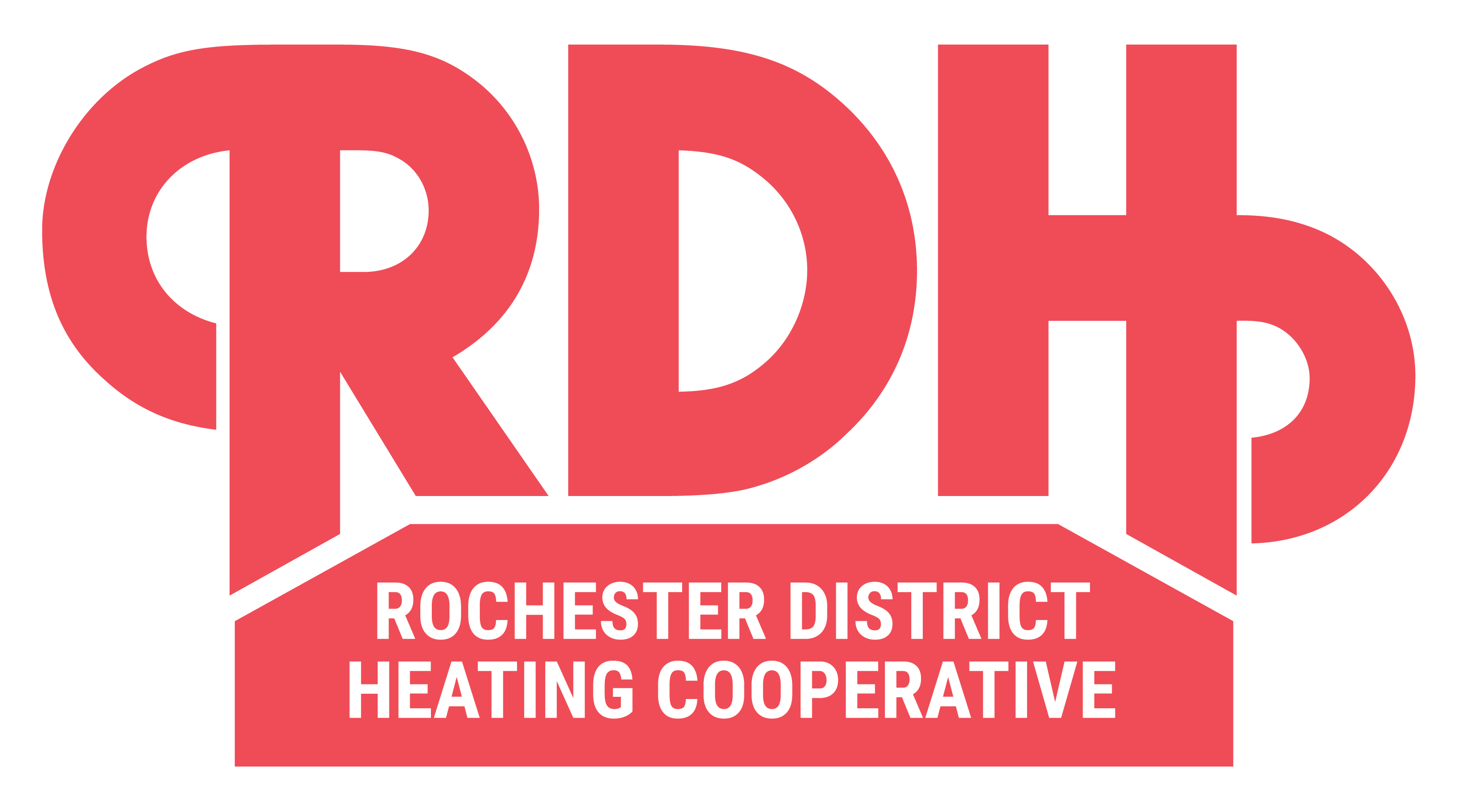FAQs
What is district heating?
A system for distributing thermal energy, primarily through underground pipes, to buildings in a geographic proximity to a centrally located generation plant. The proximity may be a campus or a municipality and can range from a few supported buildings to an entire city.
Are there other systems like RDH?
Rochester District Heating is the only public district thermal energy system in the city of Rochester, however, there are more than 840 district energy systems in the United States and many more worldwide. District energy is commonly used at college's and universities, hospitals, downtown business districts and military bases. In many European cities district energy is a requirement.
Who can connect to the RDH system?
Any building that is located within the downtown area—specifically within Rochester's downtown core and close to the existing RDH distribution system. We will evaluate your building's requirements and proximity to the system and provide consultation and comprehensive cost/benefit analysis specific to connecting your property to the RDH system.
How do RDH members use district heat?
District heating can be in the form of steam or hot water, including high-temperature hot water. District heating can be used for heating buildings, domestic hot water, humidification processes, food preparation, laundry, pools, cooling, electrical generation, snow melting, and pumping. Another common use is to heat construction sites.
What are the advantages of connecting to the RDH system?
- Greater efficiency, reliability, resiliency, and redundancy
- Eliminate capital expenditures for on-site boilers and ancillary equipment
- No equipment maintenance costs
- Competitive, flexible service plans
- Uninterrupted service 24/7/365
- Lower operator costs
- Reduced fuel requirements
- Satisfaction of supporting a locally owned organization
How is RDH positioned to adapt and grow for the future?
With the most recent targeted investments, RDH is well-positioned to support and participate in the ongoing renaissance of downtown Rochester, NY. Added capacity, increased reliability, resiliency, and redundancy, and improved efficiencies make us a competitive choice for building owners and developers who are looking for new or replacement thermal systems for their buildings. RDH is an alternative and cost-effective energy solution for local buildings, businesses, and economic developers.
RDH is also exploring new technologies and other energy systems, including distributed energy, combined heat and power/Microgrid, and chilled water.
